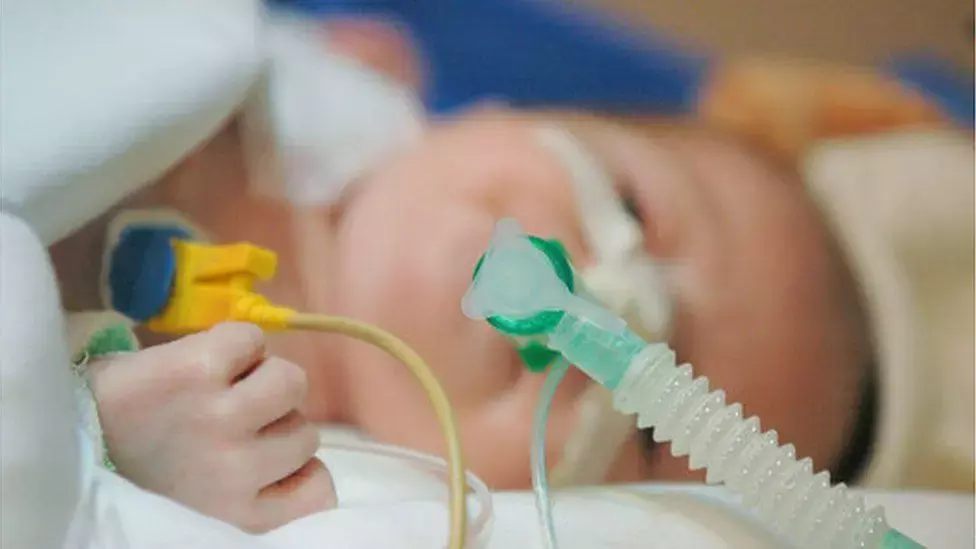- Home
- Medical news & Guidelines
- Anesthesiology
- Cardiology and CTVS
- Critical Care
- Dentistry
- Dermatology
- Diabetes and Endocrinology
- ENT
- Gastroenterology
- Medicine
- Nephrology
- Neurology
- Obstretics-Gynaecology
- Oncology
- Ophthalmology
- Orthopaedics
- Pediatrics-Neonatology
- Psychiatry
- Pulmonology
- Radiology
- Surgery
- Urology
- Laboratory Medicine
- Diet
- Nursing
- Paramedical
- Physiotherapy
- Health news
- Fact Check
- Bone Health Fact Check
- Brain Health Fact Check
- Cancer Related Fact Check
- Child Care Fact Check
- Dental and oral health fact check
- Diabetes and metabolic health fact check
- Diet and Nutrition Fact Check
- Eye and ENT Care Fact Check
- Fitness fact check
- Gut health fact check
- Heart health fact check
- Kidney health fact check
- Medical education fact check
- Men's health fact check
- Respiratory fact check
- Skin and hair care fact check
- Vaccine and Immunization fact check
- Women's health fact check
- AYUSH
- State News
- Andaman and Nicobar Islands
- Andhra Pradesh
- Arunachal Pradesh
- Assam
- Bihar
- Chandigarh
- Chattisgarh
- Dadra and Nagar Haveli
- Daman and Diu
- Delhi
- Goa
- Gujarat
- Haryana
- Himachal Pradesh
- Jammu & Kashmir
- Jharkhand
- Karnataka
- Kerala
- Ladakh
- Lakshadweep
- Madhya Pradesh
- Maharashtra
- Manipur
- Meghalaya
- Mizoram
- Nagaland
- Odisha
- Puducherry
- Punjab
- Rajasthan
- Sikkim
- Tamil Nadu
- Telangana
- Tripura
- Uttar Pradesh
- Uttrakhand
- West Bengal
- Medical Education
- Industry
Nasal Intubation tied to reduced fentanyl consumption and earlier extubation among Children after Cardiac Surgery

A recent study by Ibrahim Abdelbaser compared the outcomes of oral and nasal intubation in neonates and infants undergoing open cardiac surgery and the findings revealed that nasal intubation had several advantages over oral intubation, including reduced postoperative fentanyl consumption and earlier extubation and oral feeding. The findings were published in Journal of Cardiothoracic and Vascular Anesthesia.
The randomized, controlled, open-label study involved 220 infants and neonates who underwent cardiac surgery. Patients were randomly assigned to either oral or nasal intubation. The primary outcome measure was postoperative fentanyl consumption (µg/kg/h) among the intubated patients.
The results showed that nasal intubation led to significantly lower postoperative fentanyl consumption compared to oral intubation. The mean fentanyl consumption was 0.53±0.48 µg/kg/h in the nasal intubation group, while it was 0.82±0.20 µg/kg/h in the oral intubation group.
Additionally, nasal intubation demonstrated other benefits. The study found that the nasal group experienced a shorter time needed for intubation and a lower increase in heart rate during the procedure. Furthermore, the incidence of inadvertent intraoperative extubation was significantly higher in the oral intubation group.
Nasal intubation also led to a shorter time to extubation and a shorter stay in the intensive care unit (ICU). Moreover, the time to the onset of full oral feeding was significantly shorter in the nasal intubation group.
Importantly, there were no significant differences between the two groups in terms of hospital stay duration or the incidence of postoperative complications such as pneumonia or surgical wound infection.
These findings indicate that nasal intubation provides better outcomes for children undergoing cardiac surgery. It reduces postoperative fentanyl consumption, promotes earlier extubation, lowers the risk of accidental extubation, and facilitates earlier full oral feeding. The study's results will likely impact clinical practice, guiding healthcare professionals toward the use of nasal intubation in similar cases to improve patient outcomes.
Source:
Abdelbaser, I., Abourezk, A. R., Magdy, M., Elnegerey, N., Sabry, R., Tharwat, M., & Sayedalahl, M. (2023). Comparison of the outcomes of oral versus nasal endotracheal intubation in neonates and infants undergoing cardiac surgery: a randomized controlled study. In Journal of Cardiothoracic and Vascular Anesthesia. Elsevier BV. https://doi.org/10.1053/j.jvca.2023.07.006
Dr Kamal Kant Kohli-MBBS, DTCD- a chest specialist with more than 30 years of practice and a flair for writing clinical articles, Dr Kamal Kant Kohli joined Medical Dialogues as a Chief Editor of Medical News. Besides writing articles, as an editor, he proofreads and verifies all the medical content published on Medical Dialogues including those coming from journals, studies,medical conferences,guidelines etc. Email: drkohli@medicaldialogues.in. Contact no. 011-43720751


